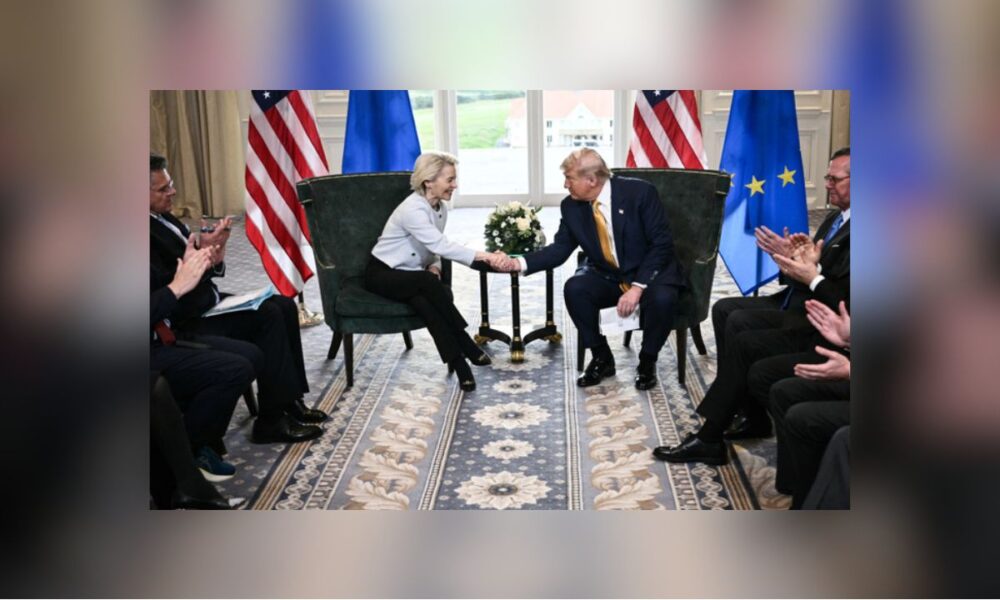President Donald Trump announced a trade agreement with the European Union on Sunday, reducing the threat of a 30% tariff set to take effect on European goods on August 1.
The deal, struck just days before the deadline, imposes a 15% tariff on most EU exports —a compromise that Trump hailed as “the biggest deal ever made.”
European Commission President Ursula von der Leyen praised the accord, saying it “creates certainty in uncertain times. It delivers stability and predictability for citizens and businesses on both sides of the Atlantic,” ABC News reported.
In exchange, the EU committed to purchasing $750 billion in U.S. energy-related goods over a three-year period and investing an additional $600 billion in the U.S. economy.
The agreement lowers the tariffs from the threatened 30% to 15%, aligning with rates recently set for Japan, but lower than the 20% applied to Vietnam and the 30% on Chinese goods.
Exemptions cover aircraft, semiconductor equipment, certain chemicals, and agricultural products, von der Leyen noted. The U.S. will see its car export tariff to the EU drop from 10% to 2.5%.
Trade data from the Office of the U.S. Trade Representative shows that the U.S. imported $605.8 billion from the EU in 2024, with a $235.6 billion goods trade deficit with the EU, representing a 13% increase from 2023.
Key imports from Europe include pharmaceuticals, cars, machinery, wine, and perfume.
Jason Miller, a professor of supply chain management at Michigan State University, told ABC News that price hikes will likely affect pharmaceuticals and beverages. However, he added, “Prices will go up a little bit—nothing too pronounced.”
With tariffs set to expand to Canada, Mexico, South Korea, and Brazil by Friday, Trump ruled out extending the August 1 deadline.
“Aug. 1 is there for everyone,” he said. “The deals all start on Aug. 1.”
White House press secretary Karoline Leavitt emphasized the strategy, noting last month, “The president and his trade team want to cut the best deals for the American people and the American worker.”
The deal faces criticism in France, where Trade Minister Laurent Saint-Martin said, “Donald Trump only understands force. It would have been better to respond by showing our capacity to retaliate earlier,” The Guardian reported.
However, European Commissioner Maroš Šefčovič defended the agreement as a way to avoid a trade war, citing intense negotiations that took place at Trump’s Scottish golf resort.
Full details remain pending as both sides work toward legal implementation.


